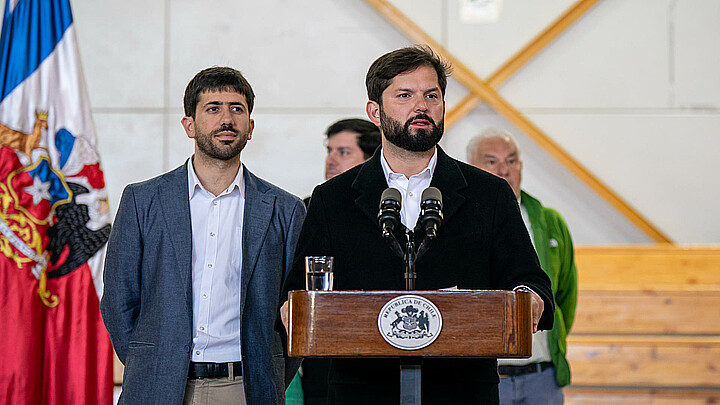Politics
Chilean markets rally after Boric names central bank chief as finance minister
A technocrat through and through, Marcel is regarded as a fiscally responsible economist known for his willingness to hold unpopular political opinions and defy political conventions
January 21, 2022 2:46pm
Updated: January 21, 2022 7:18pm
Chilean markets and investors breathed a sigh of relief on Friday after Chile’s left-wing President-elect Gabriel Boric announced that he was appointing central bank chief Mario Marcel to be his administration’s finance minister.
The peso currency strengthened early on Friday to under 800 per dollar for the first time since November of 2021 and a select index of Chilean equities also rose more than 2 percent.
A technocrat through and through, Marcel is regarded as a fiscally responsible economist known for his willingness to hold unpopular political opinions and defy political conventions.
The Cambridge-trained economist previously held positions at the World Bank, the Interamerican Development Bank and the Organization for Economic Cooperation and Development.
Strategists at Citigroup were quick to react to the appointment saying, "We believe that Mario Marcel's appointment as future minister of finance is definitely good news, as Marcel is someone with a high credibility who has supported the two pillars of Chile's macroeconomic framework: the independence of the central bank, and the structural fiscal rule.”
Miguel Angel Lopez, a public affairs professor at the University of Chile, also reacted positively to Marcel’s appointment, noting that “naming Mario Marcel as finance minister is a very good sign of economic stability, seen positively by markets.”
Isabel Aninat, dean of the law school at Adolfo Ibáñez University and director of the Chilean Society for Public Policy, said, “Marcel has shown, especially over the last few years as president of the Central Bank, a very strong commitment to fiscal responsibility, but also not afraid to express opinions even when they are unpopular.”
But the rest of Boric's picks for his first Cabinet also appear to be relatively moderate and the balanced make-up of his incoming administration — which will take office on March 11 — suggests that the former student protest leader will shy away from pushing the radical reforms that he talked about on the campaign trail such as “burying” Chile’s market oriented model, eliminating the country’s private pension system, reforming the health system and raising taxes to finance greater social spending.
"This Cabinet's mission is to lay the foundations for the great reforms that we have proposed in our program," Boric said after unveiling his ministers, adding that it would look to drive economic growth while cutting out "structural inequalities."
"We are talking about sustainable growth accompanied by a fair redistribution of wealth," he said.
Ultimately, Robert L. Funk, professor of political science at the University of Chile, believes that Boric’s inability to best free-market candidate Jose Antonio Kast may have shown him that the country is not as enthusiastic for radical reforms as one may have believed after the 2019 protests.
“Starting with the naming of Mario Marcel, the current president of the Central Bank, to the Finance Ministry, Boric’s choices for the most part reflect the desire to implement change that is real, profound, but also pragmatic and technical. There is little sign of political idealism or ideology in this cabinet," Funk said.








